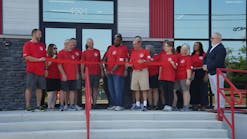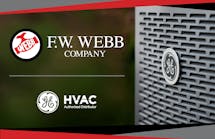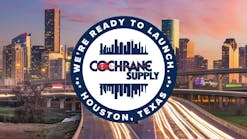As the economy continues in its uncertainty, we may worry ourselves into an even worse reality. The greatest threat to our economy right now is the cumulative effect of businesses failing to take the action they need to take as they “wait” to find out what is going to happen. If all businesses slide into a “wait” posture, the ripple-through effect could be a lingering problem for the entire economy. Unfortunately, the early signs of this “waiting” syndrome are on the horizon.
Prudence is one thing. The fear of doing what needs to be done is quite another. You must act now to position your business to survive and thrive. I've put together a list of seven key things that I believe every CEO and business leader should do NOW. Here they are:
- Recognize that “Business As Usual” is not an option.
America voted for change, and it is going to get change. Much of it will radically transform the way American businesses function and compete. For example, suddenly, in some circles, people frown upon (politically) the practice of companies having motivational meetings for employees and thank you events for customers. New solutions to meet these needs are necessary.
Business as usual is unrealistic in our current economic climate. Leaders must accept the fact that success is likely to become a moving target, and their organizations must become faster, leaner and better equipped to compete and change quickly. To embrace speed as a strategic asset requires higher levels of clarity about the real needs and goals of the organization. Clarity means evaluating and putting to the test the value and purpose of every effort.
- Create strategies based on what can actually be seen.
Economic pressures will eliminate the luxury of long-range planning, but the need to plan effectively will intensify. Organizational leaders must learn to evaluate, test and revise their plans and strategies several times a year to ensure they maintain competitive positions. In less volatile times, strategic planning every couple of years was satisfactory. Today, planning once a year isn't enough. I believe quarterly strategy reviews are a key element for future success, because success is going to become a moving target.
- Re-evaluate the Value and Purpose of your Vision.
Being clear on what leadership expects is the result of understanding the “why” of things. You achieve the discovering “why” by factually knowing and understanding the value and purpose of our vision and all that we do. As the world changes rapidly, we must constantly ensure that our value and purpose match the needs of our customers and prospects.
Being aware of the changing needs of customers is the key to winning in a troubled economy. People will continue to have needs, and that fact will never change. However, the needs of people will change faster and become less frivolous as the economy tightens. You must understand the value and purpose of your effort within the context of these changing needs.
- Identify and disrupt organizational comfort zones.
Good economic times and prosperity create comfort zones that people resist leaving. Troubled times demand that these comfort zones be challenged so that new behaviors can flourish.
Strategic change demands a lot of emotional energy because it requires new thinking, which in turn disrupts comfort zones. We all know how people resist leaving their comfort zones. That is why change is a big deal to people and is so difficult to achieve at an organizational level. The pain that accompanies change can be financial, physical or emotional, but regardless of the type of discomfort created by change, the speed of life demands that you embrace it if you intend to be competitive and effective.
- Conduct Quarterly More-Of-Less-Of Reviews.
Leaders must become focused on real results and approach all they do from that perspective. High-leverage activities require identification and execution. Since change is rapid, frequent analysis of what is working and what is not should become a standard practice.
There are four questions that you must ask:
- What do you need to do more of?
This question helps you identify what you need to continue doing in order to increase your results.
- What do you need to do less of?
You must identify the things you do that waste time or are not effective.
- What do you need to start doing?
This question asks you to think of things you are not doing that could be significant and important to getting better results.
- What do you need to stop doing?
You must identify low-impact, time-wasting activities to eliminate from your daily habits. These activities could be minor, such as spending too much time on the telephone with colleagues, helping others out on nonemergency items while pushing aside your more critical tasks, inefficiently preparing for meetings, and generally allowing small things to push you away from your primary objectives.
- What do you need to do more of?
- Commit to exceeding expectations and providing value.
Leaders must guide their organizations into a culture that is willing to exceed expectations. The ability to exceed expectations internally and externally will separate winners from losers in the years ahead.
One of the keys to creating a culture willing to exceed expectations is having organizational clarity concerning purpose and value. If there is a negative perception of purpose and value, there will be an unwillingness to exceed expectations or to change voluntarily so that you can achieve superior results. Consequently, leaders will have to push the team, rather than permit the vision to pull people toward it. For this reason, why becomes the critical issue of perception, and to achieve clarity, it must be addressed. Exceeding expectations will flow from that point.
- Abandon activities that won't move the strategic results needle.
If something isn't working, stop doing it. This means people must be willing to voluntarily let go of things that may be close to their heart but ineffective in a rapidly changing economy.
Each of these seven items is executable, even if there is a desire to “wait” for more unknowns to be eliminated from the future. These seven actions, if taken, will build confidence in your team and lay a solid foundation for success — even during bad times.
In this article, best-selling author and business strategist Tony Jeary reveals seven action items critical for success in an economic downturn. The basis for the concepts in this article is available in Jeary's book, Strategic Acceleration: Succeed at the Speed of Life (Vanguard Press; March, 2009). Jeary has personally coached the CEOs from some of the world's largest companies including Wal-Mart, Sam's Club, QualComm, Samsung, New York Life, Firestone and many others. You can find out more about Strategic Acceleration and creating superior results faster at www.strategicacceleration.com. Jeary is the keynote speaker during HARDI's Annual Fall Conference, and attendees can see him in Orlando on Tues., Nov. 3, from 8:30-10:00 a.m.








